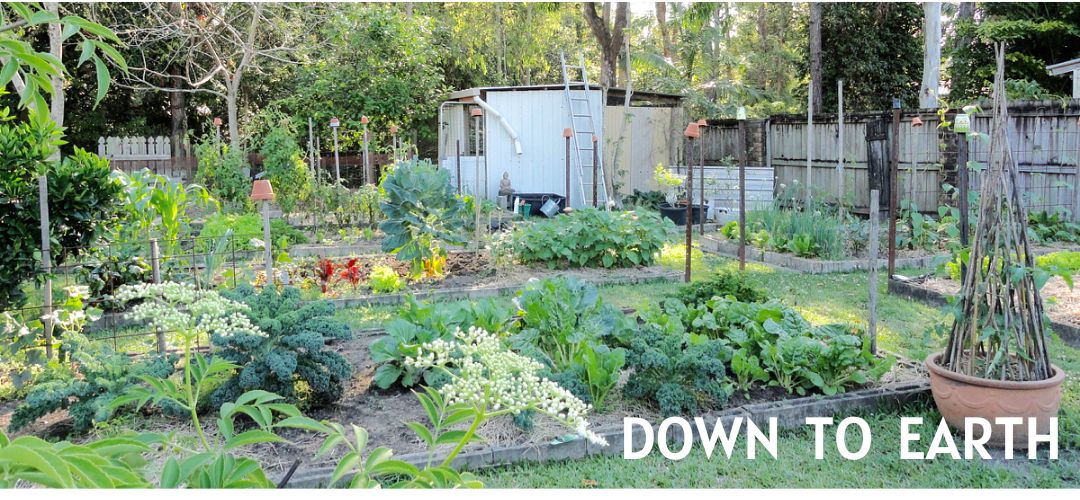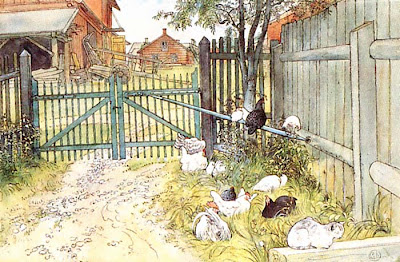Whether you like it or not, to live a simply or green life, you must reduce your spending. It's part of the territory. You will get away with not growing your own food, you don't have to keep chickens, goats, make soap, bake bread, sew or knit, you can live in the city or the country, you can work or not, you can be young or older, but the one thing everyone has to do is to reduce their spending. Every time you buy something, you also own the carbon released into the atmosphere in the making of your product, you own the petrochemicals used in it's manufacture and in the transport that gets it from where it was made, or grown, to your home. Living simply will reduce the amount of of money you need to live because you'll be satisfied with less and you'll be making a lot of what you use. Maybe you'll also do some of those things I listed above, like bread baking, growing food and sewing. You'll also make do with less, recycle and mend, and in the process of that you'll give old items new lives and reduce the amount of things you buy.
A simple life costs less than the life lived by most western people now.
So if you believe me when I tell you that you must reduce your spending, also believe me when I tell you the best way to reduce your spending is to have a budget. This is not a scary thing, it's liberating. A good budget will be one of the best tools you'll have to help you live the life you want for yourself and your family. I've said before that a simple life is not about deprivation and being miserable, so with that in mind, when you first start living this way, make your budget a document that will give you the life you want but allow yourself small things that you need to be happy. My only luxury is $10 a week that I can use to buy what I want. Many of you would wonder why I bother with such a small amount, but that is what this lifestyle is about, it's being satisfied with the small things and being happy with the life I live. If you do it well, your life will make you happy and if you do budget for small luxuries like an occasional cup of coffee, I bet you eventually give it up because you'll find other things you want to spend that money on - things that will be more important to you. But if you can't imagine a life now without being able to buy a cup of coffee, a magazine, a bottle of water or whatever, budget for it.
The only things you'll buy from now on will be what you've budgeted for.
This is how we wrote our budget. We got all the bills we paid in the previous year and added them up to make a yearly figure. That was four electricity bills, three gas bills, in the first year we guessed how much petrol we used. We added up our grocery bills, what we spent on medical, optical, dental, the garden, postage, house rates (or rents), water, insurance, phone, Internet, gifts, clothes, shoes etc - everything we spent money on was calculated out at a yearly sum. So we had a yearly figure for each thing - our electricity, our water, groceries, petrol etc. Then, because we shop monthly, we divided our yearly amounts by 12 to give us 12 monthly amounts. That is what we budget for - 12 amounts for our 12 months. If you shop weekly, fortnightly or bi-monthly, divide your amounts up by 52 (for weekly), 26 (fortnightly) or 6 (bi-monthly). Whatever the amount is that is what you have to spend for the period you have chosen.
We keep the money for our fixed bills - the things we don't have to pay in cash, like the electricity bill, phone, internet etc - in the bank. Those amounts are paid by direct debit directly from the bank when the bill comes in. For everything else, our grocery shopping, petrol, garden supplies, dog food etc, we withdraw that amount - for us it's $690 a month - in cash. That cash is then divided up and placed into a ziplock bag that is named for its purpose. For instance, I have one bag for grocery money, one bag for bulk food money, one bag for medical, dental and chemist. The good things about these bags is that you deal with real money, you see what you've spent and what you have left.
Hopefully, you've started tracking your spending because that will play a big part in your budget. When you've tracked your spending for a few weeks, you'll see the pattern of your spending. You'll find places where your money is leaking and you'll be able to stop those leaks. If, when you do your budget, you find you do not have the amount of money you need, go to your tracking, find those leaks or items that are not needed, stop the spending on those things and so you have it to cover what is in your budget. And remember, now you only spend what you budget for. If you've budgeted for your cups of coffee and you can afford them, that's fine, if you cant afford them, you will have to do without. My feeling is that if you've read this far you will be keen to get your money in order. My guess is that paying off debt and living a good life will replace your coffees - or whatever your luxury is - and you won't even notice the absence.
We try to be thrifty with all our purchases so we have money left over at the end of the month. Usually it's around $100. That money is then put into our emergency fund. If we have enough money in the EF, that leftover money goes straight into our savings. But if you're paying off debt, I would encourage you to build up an emergency fund, then put every spare cent towards paying off your debt. Put your left over money as an extra payment on the debt with the highest interest rate.
So that's it. That is my guide to budgeting or creating your own spending plan. I'm not going to say it's easy, I know it won't be, but if you can do this, it will be the thing that makes the biggest difference to the way you live. And as I said before, don't be fooled into thinking you can keep spending and also live simply - it's impossible. You do one or the other. I hope you can reduce your spending, I hope you see the worth of it, because if you do, you will be able to live well on less, you'll pay your debt off much faster and you live a life that is unique and not a carbon copy of all the others in your street.

